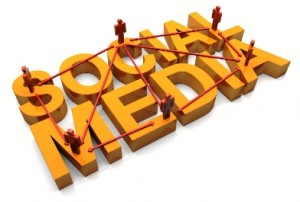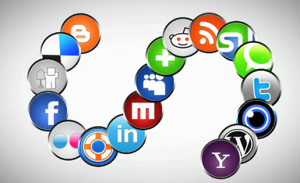Think Social Media Is Still Just A Fad?

If you had asked me two years ago if I was on Twitter and what I thought about it, I would have said, “No” and “What’s the point?” If you had asked me six years ago if I was on Facebook and what I thought about it, I would have had the same response.
I am now users of both of those websites, and many other forms of social media. Both companies have turned down multi-billion dollar offers to be bought out. Both have received venture capital funding based on multi-billion dollar valuations. Shares of Facebook are actively being traded on private, secondary markets. Clearly, there are people that believe these companies are worth a lot of money and are poised for explosive growth. Are these people crazy? Why all the buzz about a couple of companies that allow people to announce what they ate for breakfast?
While there are clearly users that post and broadcast seemingly useless information, there are those that would argue that this information is NOT useless. These are some of the same people that are investing billions of dollars on what they believe is a glimpse into the future of how people will interact on the internet, in a Web 2.0 world.
Social media connects people on the internet in a way that was not possible ten years ago. And those connections offer a glimpse into people’s lives whether they live next door, or halfway around the world. And while I may not be interested in what random people eat for breakfast, I might be interested in what my friend in Boston is doing today (and eating for breakfast). It is significant because my friend took the time to post it. There is some meaning there. Because that person is my friend, I care about what he or she posts.
Whether or not we like to admit it, we are a somewhat voyeuristic society. Just look at the explosion of “reality television” over the last 10+ years. Despite being profitable for networks, people enjoy viewing others’ lives from a distance. We watch any one of these shows (alone or with other people), then make comments along the way: “I can’t believe so-and-so did that!”
Conversations about this have penetrated water-cooler talk at work. We bond with others at the office about what happened in a show the night before. And frankly, this is nothing new. There is a reason that water-cooler talk existed long before reality television. But yet, social media has given us another outlet to share and take information from those in our network of friends, family and coworkers. It brings everyone in your network, along with some other people that may have previously been outside of your network, into your domain. And it is a popular domain, because the user has control (most of the time) of his or her online persona. When was the last time you saw someone choose a picture for their avatar that looked terrible? Every user can portray him or herself in the light they choose, by choosing what updates and information to post. A lot can be said about what a person chooses to share.
Okay, this is all nice and sounds great, but what about serious stuff? I see people share what seems to be trivial bits of information all the time. But if someone has a serious thought or message, they go through a more traditional channel to do so, right? Think again.

According to a recent Pew Research Poll, “73% of adult internet users (representing 54% of all U.S. adults) went online to get news or information about the 2010 midterm elections, or to get involved in the campaign in one way or another.” Clearly, the internet is changing the way in which people consume their news. If you have trouble believing this, just ask one of the many newspapers that have recently folded, or are under financial duress because their subscriptions have plummeted. In fact, ask anyone involved in print media—magazines and books included. They are all experiencing a drastic decline because of the digitalization of media.
But social media is also pervasive in the political world, as well as every other world. How and why? News and politics are about events and personalities that shape our lives, as a nation, a country, a state, a county, a town, a neighborhood, a family, or a circle of friends. We may experience things differently, but we experience them. And because we may experience them differently, as human beings, we like to share that experience with others. Social media is a great platform to do so. Just ask John McCain about how social media can affect an election. Then presidential candidate Barack Obama hired one of Facebook’s founding members to help with his social media strategy for his 2008 Presidential Election. He was able to assemble and galvanize support via various forms of social media that was unprecedented. And the data from Pew Research’s article show the increased pervasiveness of social media in politics:
“As an example of the changing landscape for online politics since the last midterm contest, the proportion of internet users who viewed campaign-related videos online jumped from 19% in 2006 to 31% in 2010. Similarly, as recently as the 2006 election cycle just 16% of online adults used online social networking sites; today roughly six in ten online adults are social networkers, and these sites have emerged as a key part of the political landscape in the most recent campaign cycle.”
But don’t allow this blog writer to convince you that the social media landscape will be one of the top stories of the upcoming decade. Do your own research; engage some other people in discussions about this. While doing some digging, you may utilize some social media sites along the way…